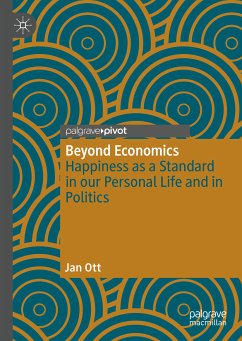There is a lot of attention for happiness, but there is also a lot of confusion, about the concept and the nature of happiness. This book wants to reduce this confusion, to make the deliberations and discussions about happiness more productive. A reduction of confusion will also make it easier to assess happiness as a possible standard in our personal life and in politics. Acceptance of happiness as a standard will have positive effects. Acceptance in personal life will make individuals more critical, and less vulnerable for adversity and manipulation. Acceptance in politics will contribute to a better detection and analysis of social-economic problems. Such positive effects are important for well-being. Well-being is usually defined as 'objective well-being' by experts, like medical specialists or psychologists. They apply their professional standards like blood pressure or personality characteristics. Happiness, on the other hand, is 'subjective well-being' as experienced by the people themselves. This happiness is the appreciation of one's own life as a whole, and this appreciation is based on standards people have adopted themselves, knowingly or unknowingly. Happiness as subjective well-being, and objective well-being as defined by experts, are complementary. It is important to asses objective and subjective well-being simultaneously, and it is incorrect to ignore one of them.
Jan Cornelis Ott studied sociology and law and specialized in social economic policy, labour relations, and public administration. He worked as a policy adviser for the Dutch Ministry of Social Affairs and Employment and participated in several Conferences of the International Labour Organization. Since 2004 he has worked as a social researcher at the World Database of Happiness at the Erasmus Happiness Economics Research Organization, at the Erasmus University in Rotterdam. In 2012 he finished his dissertation "An Eye on Happiness; happiness as an additional goal for citizens and governments". He published many articles about the importance of the quality of governments for well-being and happiness, e.g. in The Journal of Happiness Studies and in Social Indicators Research.
Dieser Download kann aus rechtlichen Gründen nur mit Rechnungsadresse in A, B, BG, CY, CZ, D, DK, EW, E, FIN, F, GR, HR, H, IRL, I, LT, L, LR, M, NL, PL, P, R, S, SLO, SK ausgeliefert werden.









